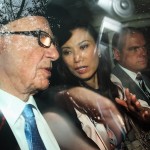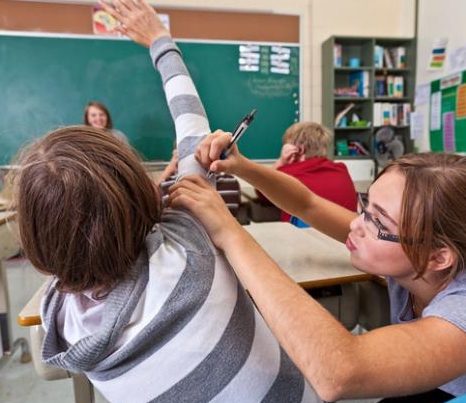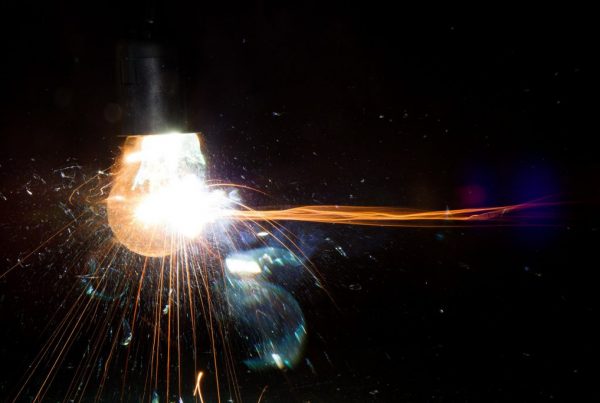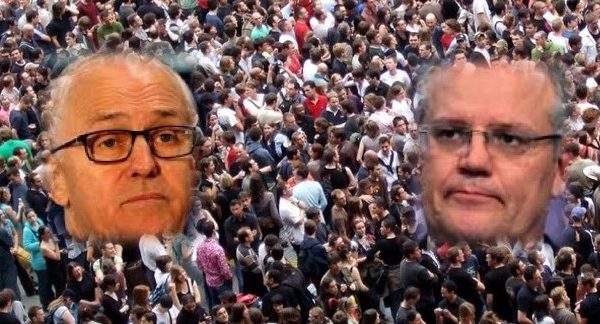Murdoch senior’s appearance at the Leveson Inquiry was always going to become a media feeding frenzy – the worst possible experience. It was always going to be an extraordinarily stressful point in his career, and no doubt he and his advisors knew that. It’s provided quotes for a dozen books or more. Below is the way the NYT saw it.
There are so many lessons in the Phone Hacking Scandal for Crisis Public Relations practitioners; so, at this stage of this long running saga, it’s worth a review of the Crisis PR basics.
We stress that there are four core personal attributes important for any individual in a crisis – and we make judgements based on our assessment of them when we plan:
- Have a hide as thick as a rhino’s OR ‘Don’t let the Bastards get you down’ (Illegitimi non carborundum): keep your true friends close because in a crisis the rest will desert you; stay true to your values, when everyone commentating appears to think you have none; remember there is a silent majority of people out there who think for themselves.
- Be on watch 24/7: a crisis is gruelling and relentless; have a support team, a mix of strategists and tacticians; sleep well.
- Understand the media: the audience is bombarded by many voices – commentators competing to be heard.
- Understand social media: now, the audience can listen to one voice – yours. Choose the channel that suits your personality.
The Three Crisis Objectives
- First, Win the Debate
- Do we have the winning argument?
- Can we set the debate agenda – daily?
- Are we being trustworthy: accurate, honest and transparent?
- Next, Stop the Debate
- From the beginning of a crisis, are we working towards ending it?
- Tacticians have to be able to judge when and how to turn off the tap, particularly media activity.
- Now, Work to Recover
- We start ‘working to recover’ from Day One.
- Our reputation depends on our recovery planning and skills.
For Recovery we require 6 check-points:
- accurate self-assessment
- accurate assessment of community expectations
- time
- accuracy, honesty and transparency in frequent communications
- preparedness to eat crow (humility)
- patience.
At British Inquiry, Murdoch Apologizes Over Scandal
By ALAN COWELL: April 26, 2012
LONDON — After a day of testimony at a British judicial inquiry over his ties, friendships and disputes with British politicians, Rupert Murdoch returned to the witness stand on Thursday, saying he apologized for failing to take measures to avert the hacking scandalthat has convulsed his media outpost here.
“I also have to say that I failed,” Mr. Murdoch told the so-called Leveson inquiry. “I am very sorry about it.”
He said that he had not paid adequate attention to the newspaper at the center of the scandal, The News of the World tabloid, which Mr. Murdoch closed in July as the affair widened.
“It was an omission by me,” he said, adding that he wished to apologize “to a lot of people, including all the innocent people” at The News of the World, a Sunday tabloid, “who lost their jobs.”
Mr. Murdoch’s appearance offered rare public scrutiny of one of the world’s most powerful media tycoons who is usually shielded from unwelcome attention by his power, influence and wealth. His son James testified at the inquiry for five hours on Tuesday.
Over all, the questioning by the inquiry this week seemed almost deferential and genteel, in contrast to the Murdochs’ appearances before Parliament last year. There, in November, one questioner, Tom Watson, likened James Murdoch to a Mafia boss — a comparison the younger Mr. Murdoch called offensive and untrue. In July, when the two men appeared together at the parliamentary inquiry, a protester hurled a foam pie in Rupert Murdoch’s face.
On Thursday, however, the questioning seemed not to have struck any major target in the elder Mr. Murdoch’s carefully constructed verbal defenses.
And while he called his handling of the crisis a “blot” on his reputation, he seemed to emerge from two days of questioning with no further major blemishes exposed.
Casting himself as a victim, Mr. Murdoch coupled his apology with suggestions that there had been what he called a cover-up “from within The News of the World” to hide the extent of the phone hacking scandal from the owners’ top executives. And, like his son in testimony on Tuesday, he seemed to blame subordinates for not alerting him to the practices being used at the newspaper to secure its scoops.
At times contrite and on a occasionally somewhat testy, Mr. Murdoch became more ruminative and discursive, when he was allowed to dwell at some length on the future of the printed word, pondering not only the destiny of his own newspapers but, as if addressing a seminar rather than an inquiry, also ranging over the broader issue of the future of the press in the digital era.
The day would come, he said, when the news business would be “purely electronic” in five, 10 or 20 years.
He appealed directly to the head of the inquiry, Lord Justice Brian Leveson, to be cautious when contemplating any regulatory measures flowing from the hacking scandal. “The press guarantees democracy, and we want democracy rather than autocracy,” he said.
Referring to events at The News of the World, he described them as “a serious blot on my reputation.”
He said he accepted that “the buck stops with me” in cleaning up his British media outpost and that he had spent hundreds of millions of dollars in the effort to do so.
“We are now a new company, and we have new rules, new compliance officers,” he said.
Since the scandal erupted last summer, Mr. Murdoch, 81, has been forced to undertake once unthinkable measures, like the closure of The News of the World and the abandonment of a $12 billion satellite television bid by News Corporation, as questions have deepened about the behavior and ethics of journalists, editors and managers working for him.
Asked why he had closed The News of the World, Mr. Murdoch said that disclosures relating to hacking the voice mail of Milly Dowler, a teenager who was abducted and killed in 2002, had caused a wave of public revulsion.
“I panicked,” he said. “But I’m glad I did. I’m sorry I didn’t close it years ago and put a Sunday Sun in.” Since the closure of The News of the World, Mr. Murdoch has introduced a Sunday edition of the daily tabloid, The Sun.
Robert Jay, the government’s lead attorney at the inquiry, pressed Mr. Murdoch over events leading to the withdrawal of a bid aimed at acquiring the 61 percent News Corporation, the Murdoch conglomerate, did not already own in Britain’s largest satellite broadcaster, BSkyB.
Mr. Murdoch said he had delegated responsibility for the BSkyB bid to his son.
Pressed about the negotiations, Rupert Murdoch said he did not believe he had met with Jeremy Hunt, Britain’s culture minister, who was in charge of overseeing the bid. Mr. Hunt is at the center of a political firestorm over covert contacts between his office and Frédéric Michel, a representative of the Murdoch family.
An aide to Mr. Hunt, Adam Smith, resigned on Wednesday, saying in a statement that his contacts with Mr. Michel went too far, but Mr. Hunt has resisted calls from the Labor opposition for his dismissal.
Mr. Murdoch said he did not regard Mr. Hunt as a champion of his bid. “I assumed that any responsible minister would be responsible and deal with it in an unbiased way,” he said.
In addition to the investigations by Parliament and the current inquiry under Lord Justice Leveson, the British police have launched three separate inquiries into hacking of voice mail, e-mail and the alleged bribery of police officers.
So far, the police say they have arrested and questioned 26 people in the investigation into corruption and bribery. Twenty others have been arrested in separate inquiries into phone and computer hacking by journalists at News International, the British newspaper subsidiary of News Corporation, Mr. Murdoch’s global conglomerate, which is based in New York.
The scandal has sent deep shudders through British public life, with politicians of all stripes accused of currying favor with Mr. Murdoch in order to ensure the electoral endorsement and broader support of his newspapers, particularly the mass-circulation Sun.
Those arrested and bailed include Rebekah Brooks, once a high-flying editor and confidante of Rupert Murdoch. She was chief executive of News International before resigning over the scandal.
Another is Andy Coulson, a former editor of The News of the World who became Prime Minister David Cameron’s communications chief but left his job at the prime minister’s office as the scandal grew.
The Leveson inquiry has been pressing to find out how much Rupert and James Murdoch knew about the hacking and when they found out. After the newspaper’s royal reporter and a private investigator were jailed in early 2007 for hacking into the voice mail of members of the royal family, News International insisted that the practice was limited to what was termed a single “rogue reporter.”
Since then, the police have said they have found thousands of potential cases.
Mr. Murdoch said on Thursday that News Corporation had investigated its global press holdings from Australia to the United States to ensure that phone hacking was limited to its British subsidiary.
“The News of the World was an aberration, and it’s my fault,” he said.
He said News Corporation had examined millions of e-mails and had provided information to the police in Britain which “led to the arrest and terrible distress of a number of families, of journalists who had been with me” for many years.
“It caused me a lot of pain, but we did it,” he said.
Sarah Lyall and Ravi Somaiya contributed reporting.





